Friday Five: Dr. Peter Larson, ECOATM, and Rebecca Goldberg, The Velvet Snakes, Cece June
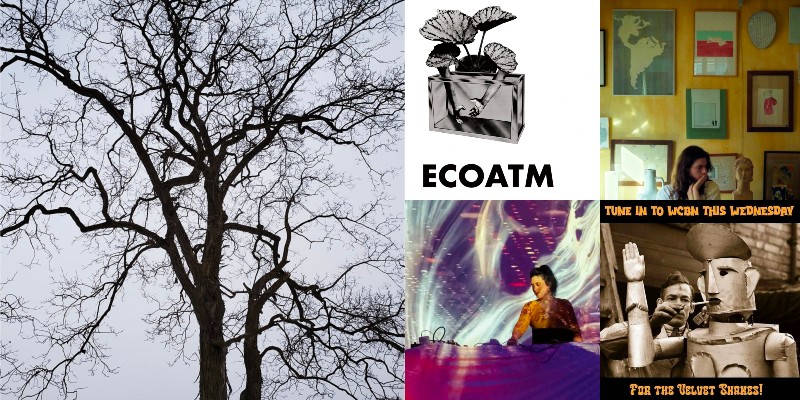
Friday Five highlights music by Washtenaw County-associated artists and labels.
This week features electronic music by Dr. Peter Larson, ECOATM, and Rebecca Goldberg on the new Great Corner Sound label, garage rock by The Velvet Snakes, and sad folk-pop by Cece June.
Diasporic Distillations: "We are here because you were there" at A2AC explores works by Asian American / Asian artists
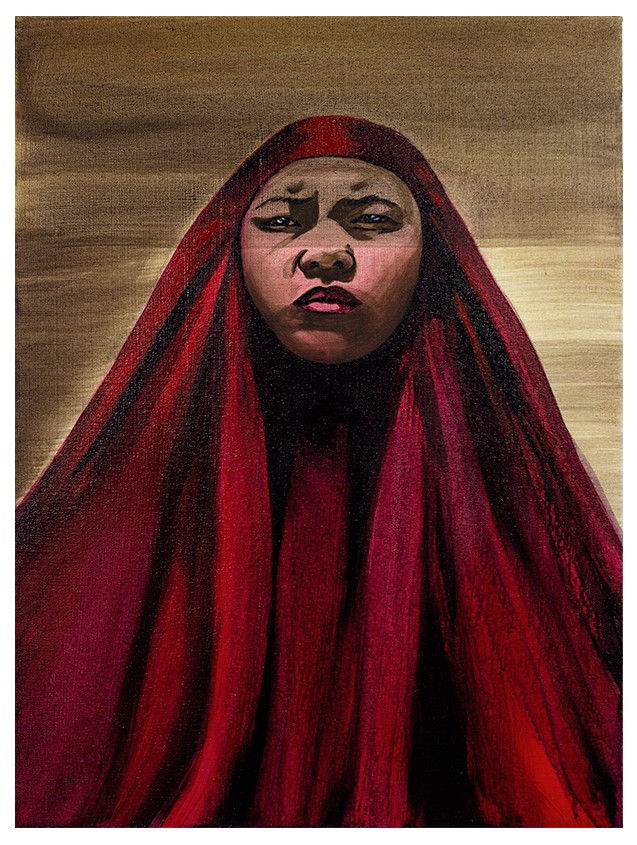
The new exhibit at Ann Arbor Art Center (A2AC), We are here because you were there, highlights issues facing the Asian American and Pacific Islander (AAPI) diaspora living in a post-colonial world.
Curated by Chien-An Yuan, a multi-disciplinary artist in his own right, the exhibit features the work of Asian American / Asian artists Kim Jackson DeBord, Laura Kina, Larry Lee, Cori Nakamura Lin, Okyoung Noh, and Sherina Rodriguez Sharpe. It is formally presented by the Michigan Asian Pacific American Affairs Commission.
“I reached out to Chien about co-curating a show revolving around the concept of displacement/DREAMERS/living between various cultures,” said A2AC gallery director Thea Eck about the exhibit, which runs through October 22. “As a gallery director, I saw a chance for myself to lean out and for him to lean in. It felt more natural for me to support his ideas as they became more focused and honed in. This is part of allyship and part of the A2AC Exhibition program's vision: To recognize when it's best to play support to someone who is in a specific community. We can be the loudspeaker to amplify and give space, time, and a budget to.”
Claudfest: Singer-songwriter Claudia Schmidt celebrates 50 years of performing
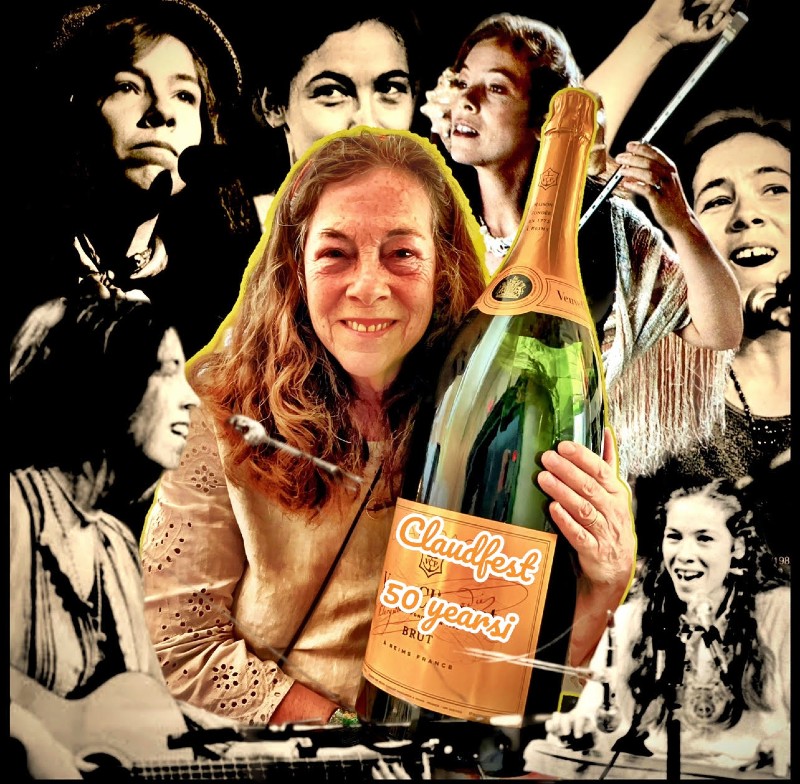
“Golden anniversary” sounds tacky and “semicentennial” reads incomplete, so what does a musician call her slow-rolling, year-long celebration of 50 years on stage?
For Claudia Schmidt, you just go ahead and portmanteau it—hence Claudfest, and let the bells ring.
Schmidt’s career as a singer-songwriter spans time as well as genre, and she’ll perform selections from her accumulated repertoire on Saturday, October 7, at The Ark when she appears with Rachel Davis.
While she remained active through the COVID-19 shutdowns with a regular series of YouTube concerts, the stage is where Schmidt’s art truly breathes, her rapport with the audience an essential element. Her long-awaited return to A2 brings Claudfest to a city that bore witness to various stages of her musical evolution.
A native of New Baltimore, Michigan, Schmidt pulled the modern equivalent of running away with the circus as soon as she was able, joining a theater group after high school and traveling with them for a year. Another round of seasons given to the University of Michigan didn’t work out, so she relocated to Chicago, where an already vibrant folk music scene welcomed her and inspired a career that led to dozens of records and countless miles.
Ann Arbor would have been a regular stop for anyone playing the Midwestern folk circuit of the 1970s, and Schmidt had no shortage of gigs at the venue she’ll visit this weekend. “I’ve played at all of The Arks,” she said. “I played at the original one on Hill Street, then when it moved to South Main. I’ve followed them all around.”
UMMA's "Arts & Resistance" exhibits look at the role of creative works in fighting for cultural change
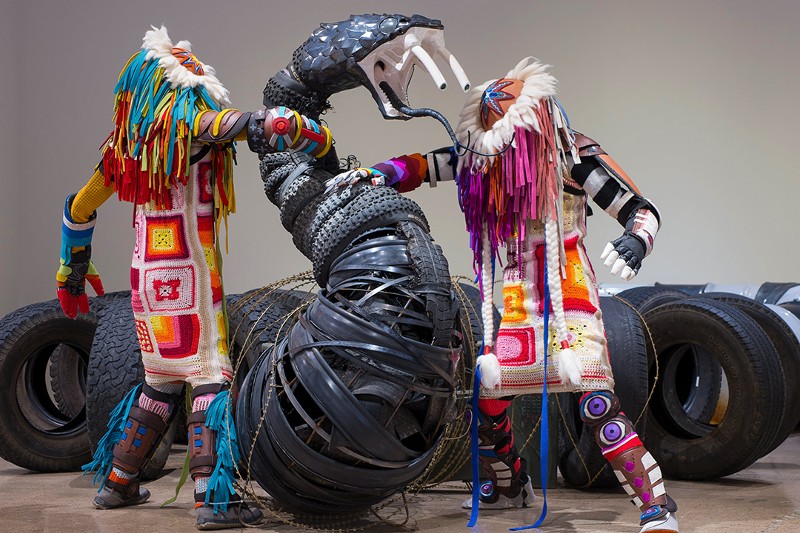
Artists resist.
They share unique visions, even those that run counter to cultural norms. And they resist attempts to shut down museums, to cancel productions of plays, to ban books.
Artists also resist death by creating work they hope will outlive them. Shakespeare knew: “Not marble, nor the gilded monuments of princes shall outlive this powerful rhyme."
For the fall semester, the University of Michigan is exploring ways artists resist social ills and injustices with Arts & Resistance, a campus-wide partnership between departments and galleries organized by the University of Michigan Museum of Art (UMMA) and the U-M Arts Initiative.
UMMA's three exhibits for Arts & Resistance document a history of wrongs that include slavery, appropriation of Native American land, and systemic racism.
Second Run: David Roof’s Funky Rivertown Fest Returns October 10-14 at Riverside Arts Center in Ypsi
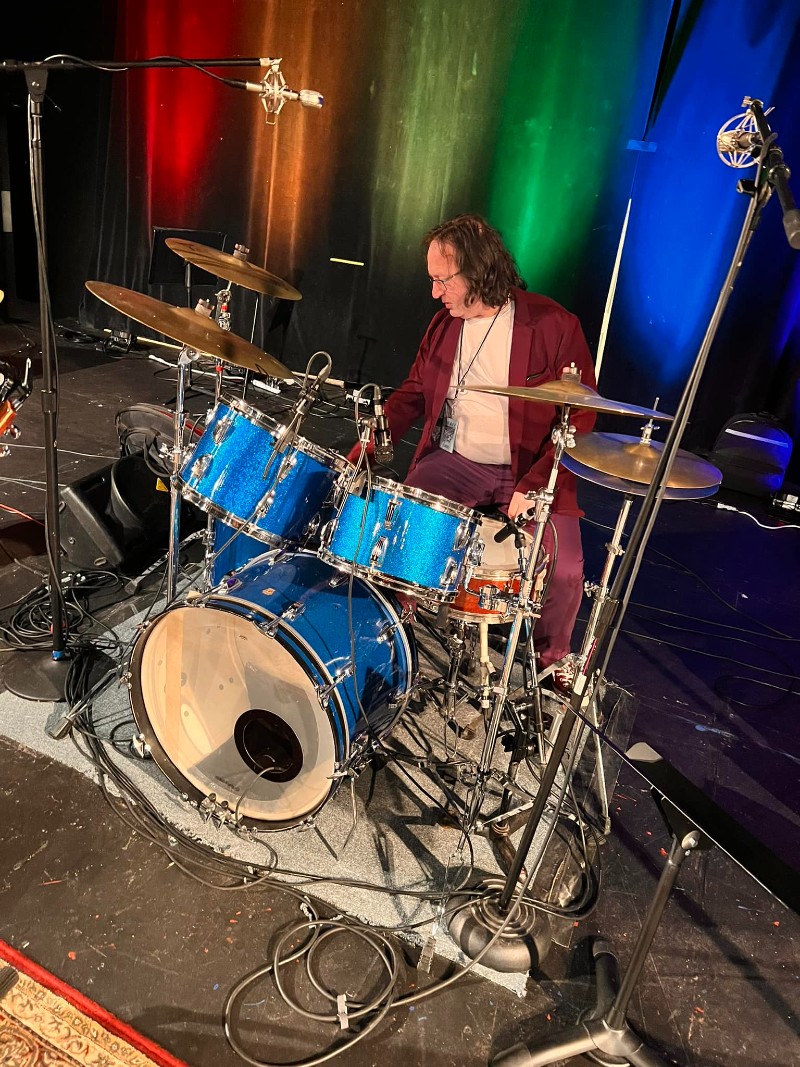
After playing outdoor music festivals in the summer for years, David Roof wanted to capture that same spirit indoors during the fall and spring.
The producer, recording engineer, and live performer launched Funky Rivertown Fest, a biannual music festival that debuted in March and returns October 10-14 for a second run at Ypsilanti’s Riverside Arts Center.
“I love some of the music festivals in the summertime, including Holler Fest and Earthworks Harvest Gathering, and Blissfest and Wheatland are the old standbys and senior veterans of the festival scene,” said Roof, who owns and operates the Grand Blanc-based Rooftop Recording.
“But that’s all during the summertime, and in Michigan, we only have four or five nice months of weather, so that was the inspiration for me to want to do a live music series that could happen after the nice weather is gone and before the nice weather has arrived.”
At Funky Rivertown Fest, Roof features a lineup of Americana and rock-inspired acts that come from Washtenaw County and Metro Detroit. They specialize in folk-rock, blues-rock, power-pop, roots-rock, and country over five days of live performances:
• Tuesday, October 10: Adam Labeaux and Head Full of Ghosts
• Wednesday, October 11: Eric Moore with Rochelle Clark and Jason Dennie
• Thursday, October 12: The Outfit and Songwriters in the Round with Scott Martin, Milan Seth, and Linden Thoburn
• Friday, October 13: Bobby Pennock’s Big Fluffy Band and The Dirk Kroll Band
• Saturday, October 14 (matinee show): Paul’s Big Radio and Saturday Matinee Songwriter Round with Judy Banker, Matthew Thick, and Jeff Brach
• Saturday, October 14 (evening show): The Lucky Nows and Anna Lee’s Co.
Tailored Feelings: "Intimate Apparel" sews together the relationships between a Black clothier, her clientele, and romantic interests
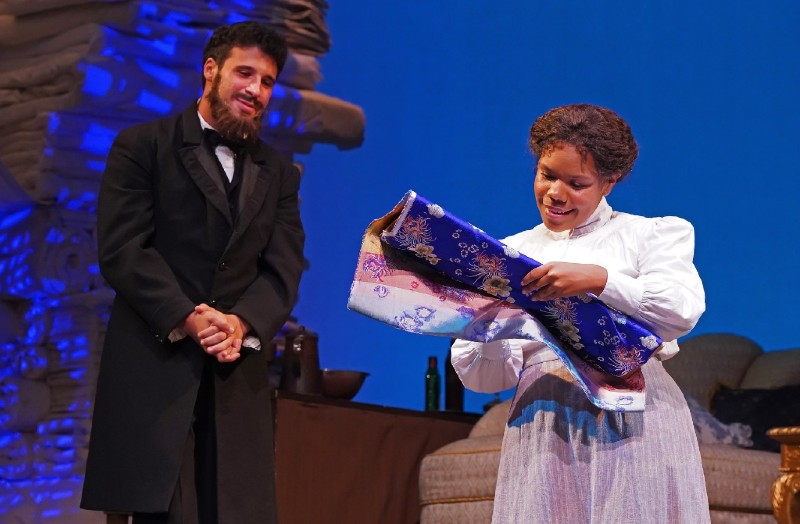
Every day we wake up and get dressed. But we rarely think about the people who make our clothing.
Pulitzer Prize-winner Lynn Nottage focuses on the emotional life of a clothier in Intimate Apparel, which the University of Michigan's Department of Theatre and Drama is staging through October 8 at the Arthur Miller Theatre.
Set in New York City in 1905, Intimate Apparel follows the story of Esther, played by Myah Bridgewater, a Black seamstress who is known for her superb sewing skills. Her clientele is wide-ranging, from wealthy white socialites to Black prostitutes, namely her best friend Mayme (Gilayah McIntosh), and she specializes in fine undergarments.
Not only is she talented behind a sewing machine, but Esther is also known for being discreet with her customers and their secrets—specifically Mrs. Van Buren (Bella Detwiler), a rich housewife who is having trouble getting pregnant by her husband and is reminded constantly of her failure to do so.
Friday Five: The Vicissitones, Saga, History History, Brawny Lad, Idle Ray
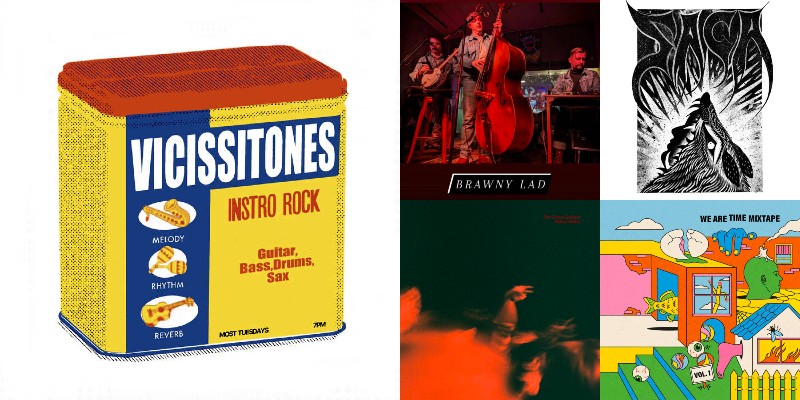
Friday Five highlights music by Washtenaw County-associated artists and labels.
This week features surf rock by The Vicissitones, metallic garage by Saga, atmospheric noise rock by History History, that high-lonesome sound by Brawny Lad, and a distorted folk-raver by Idle Ray.
Late in the World: Molly Lynch's new novel tracks the willing disappearance of a mother and wife
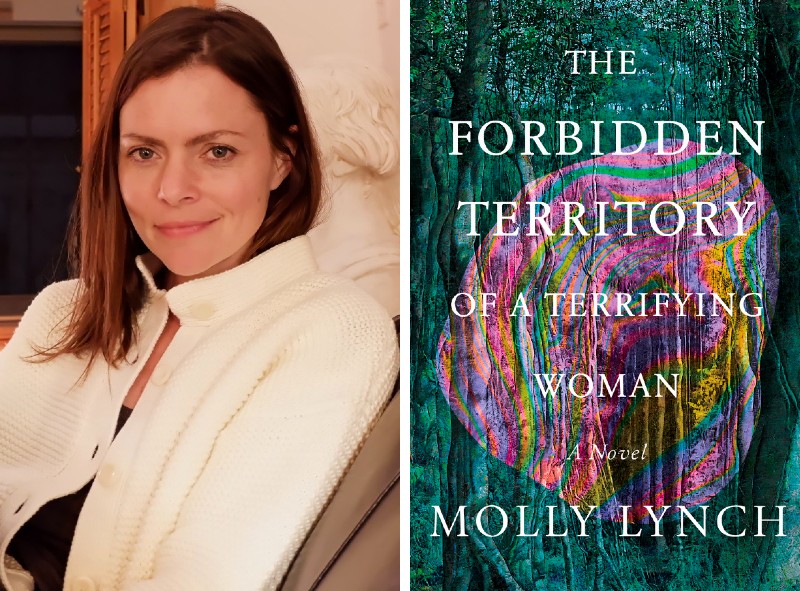
Imagine that you have an urge to disappear and be unreachable.
Then, imagine that someone whom you care about has that urge, but you don’t know where they went or why.
Now, add many more layers of complexity to the woman who disappears given that she has a family, including a child, and a career.
These circumstances would raise many questions, and the premise of Molly Lynch’s new novel does just that.
The Forbidden Territory of a Terrifying Woman tracks Ada, a mother and wife who goes missing suddenly. Her husband, Danny, and son, Gilles, are left behind, bereft and confused. Yet, Ada is following her thoughts and feelings. With an omniscient third-person narrator, the reader gets insights into all the characters.
Early on in the book, the bond that Ada, Danny, and Gilles have with each other becomes clear, as “All three of them were one connected thing.” Yet, there are challenges:
Out of This World: deegeecee finds relief on and off Earth on “Sundogs & Weekends on the Moon” album

deegeecee didn’t expect to find creative inspiration from a set of scientific encyclopedias.
The Ypsilanti hip-hop artist and writer read different volumes on his breaks while working as a substitute teacher at a middle school.
“From one of them, I learned the term ‘anthelion,’ which is similar to a sun dog,” said deegeecee, aka Daryhl Covington. “I looked it up later, and it had a cool picture that was associated with it … and I saw a sun dog.”
That fascination led deegeecee down a Reddit and Google rabbit hole where he learned more about the atmospheric phenomenon.
“It’s all the crazy stuff that happens in the world naturally … it felt cosmically humbling,” deegeecee said. “I was also reading a lot about spirituality and the guru movements of the ‘80s and ‘90s … it was like, ‘What if I could take that mystic feeling and put that in everyday words and stories that made sense?’”
Those words and stories resulted in deegeecee’s contemplative new album, Sundogs & Weekends on the Moon, which features 15 tracks about loss, self-doubt, growth, and change.
“It’s about dealing with loss, whether that’s the loss of a person or the loss of the past,” he said. “It’s [also] about my thoughts on life and the artistic process and coming to terms with the type of artist that I want to be and where that’s going to position me.”
On Sundogs & Weekends on the Moon, deegeecee positions himself in a mystical world filled with poetic lyrics, hypnotic beats, post-rock and film score samples, cosmic imagery, and manga references.
We recently spoke to deegeecee about his background, the creative process for his debut album, his appreciation for manga and Japanese culture, select album tracks and collaborators, and upcoming plans.
The debut novel by Ann Arbor author and therapist Jan Leland follows characters processing emotions in the early days of the pandemic
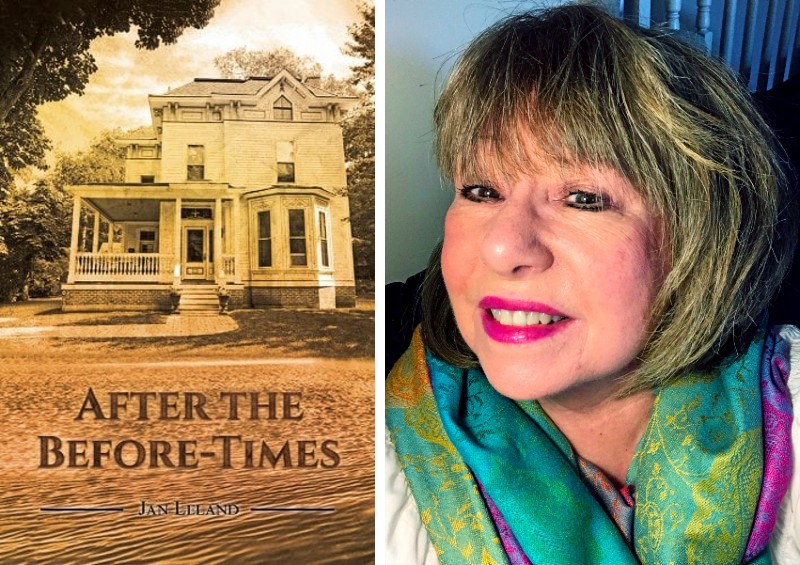
We all collectively endured the pandemic, but we each had an individual experience of it.
The unique but relatable stories from 2020 to 2021 are what Jan Leland tells in her new novel, After the Before-Times.
The circumstances in which Leland’s characters’ find themselves all differ, but they converge at the same time—when COVID-19 emerges—and in the same place: the Clearview Inn on Orchard Lake in Keego Harbor, Michigan. Through these characters, Leland portrays the stress and anguish—as well as the triumphs and coping mechanisms—of the early days of the pandemic.
One of these characters, Ashley Cooper who is known as Ash, works at The Book Shelf in town. The coronavirus affects her early on when her boss and close friend, Marla Phillips, sickens and passes away. As Leland is attentive to character development, we learn about Ash in detail:
Pretty and petite with shiny shoulder length curly brown hair and brown eyes, high cheekbones and dimples, Ashley was smart and curious. Although Marla felt Ashley needed life experience, she perceived an inner strength to Ashley. It did not take much for Marla to convince Ashley to take the position of Store Manager at The Book Shelf.
The job offered, in Ashley’s eyes at least, the opportunity to work and live in a small town where people were friendly and easy-going and where Ashley felt important and sophisticated in providing literary knowledge and expertise.
This opportunity for Ash allows her to not only engage with books but also meet many others with whom she becomes close.


































